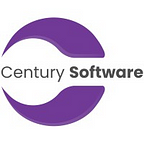The Future of Work: Exploring the Impact of Robotic Process Automation
The world of work is undergoing a transformational shift, driven by technology, automation, and artificial intelligence. One of the most notable trends in this evolution is Robotic Process Automation (RPA). RPA is changing the way businesses operate, streamlining processes, reducing human error, and increasing efficiency. In this article, we’ll explore the growing impact of Robotic Process Automation on the future of work.
What is Robotic Process Automation (RPA)?
Robotic Process Automation (RPA) is a technology that uses software robots or “bots” to automate repetitive, rule-based tasks and processes. These bots mimic human actions by interacting with digital systems, applications, and data. RPA is designed to handle routine, high-volume tasks, freeing up human workers to focus on more complex and creative aspects of their jobs.
The Impact on the Workforce
Increased Efficiency and Productivity:
RPA significantly boosts efficiency and productivity by completing tasks faster and with greater accuracy than humans. This allows organizations to process large volumes of data and transactions more quickly, resulting in cost savings and improved customer service.
Error Reduction:
Human errors can be costly and time-consuming to rectify. RPA reduces the risk of errors in tasks such as data entry, ensuring data accuracy and compliance with regulations. This not only saves time but also enhances the quality of work.
Cost Savings:
Automating repetitive tasks can lead to substantial cost savings by reducing the need for manual labor. While implementing RPA may require an initial investment, the long-term benefits outweigh the costs.
Scalability:
RPA is highly scalable, making it adaptable to changing workloads. Organizations can easily add or remove bots as needed to match demand, ensuring optimal resource allocation.
Enhanced Customer Experience:
RPA can improve customer service by providing faster response times and accurate information. Bots can handle routine customer inquiries, leaving human agents to focus on complex issues that require empathy and problem-solving skills.
The Evolving Role of Humans
While RPA is reshaping work processes, it’s important to note that it isn’t replacing humans. Instead, it’s augmenting human capabilities, allowing employees to focus on tasks that require creativity, critical thinking, and emotional intelligence. The future of work is likely to see humans and bots working collaboratively to achieve better results.
Upskilling and Reskilling:
As automation takes over routine tasks, the workforce needs to adapt. Upskilling and reskilling programs become essential to equip employees with the skills needed to work alongside RPA and AI technologies effectively.
Focus on Creativity and Innovation:
With mundane tasks automated, human workers can dedicate their time to more strategic, innovative, and customer-centric activities. This shift can lead to a more fulfilling work experience.
Problem-Solving and Decision-Making:
Humans excel in complex problem-solving and decision-making. RPA can provide valuable data and insights, but it’s up to humans to interpret this information and make informed choices.
Challenges and Considerations
While RPA offers significant benefits, its implementation comes with challenges and considerations:
Data Security: Protecting sensitive data processed by RPA bots is crucial. Ensuring data privacy and compliance with regulations is essential.
Change Management: Organizations must manage the cultural shift that comes with automation. Employees may initially resist change, and effective change management strategies are necessary.
Process Optimization: Before implementing RPA, businesses should evaluate and optimize their existing processes to ensure a smooth transition.
Conclusion
The future of work is undeniably intertwined with Robotic Process Automation. As businesses increasingly adopt RPA solutions, they will experience increased efficiency, reduced costs, and improved customer service. While the landscape of work is evolving, it’s important to remember that humans remain at the center of innovation, creativity, and complex decision-making. The successful integration of RPA into the workforce will depend on upskilling, adaptability, and a strategic approach to automation, ultimately leading to a more productive and fulfilling work environment for all.
